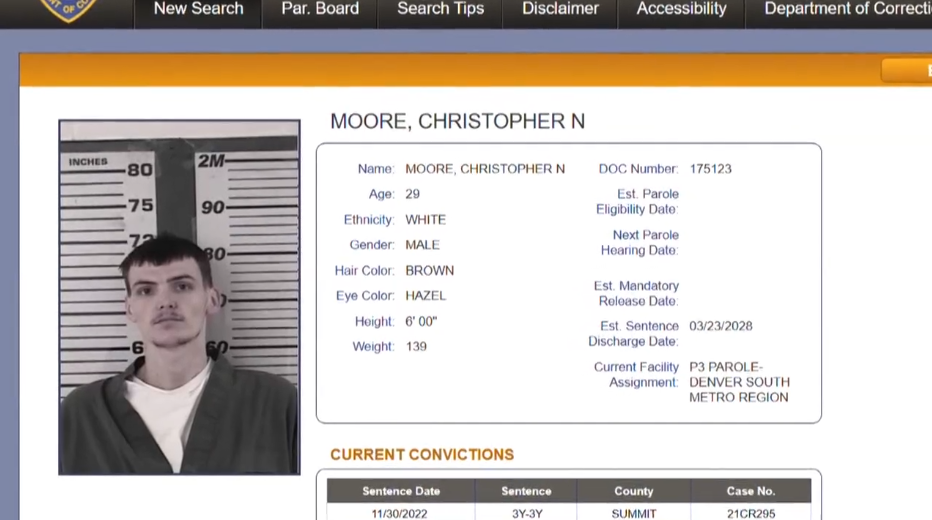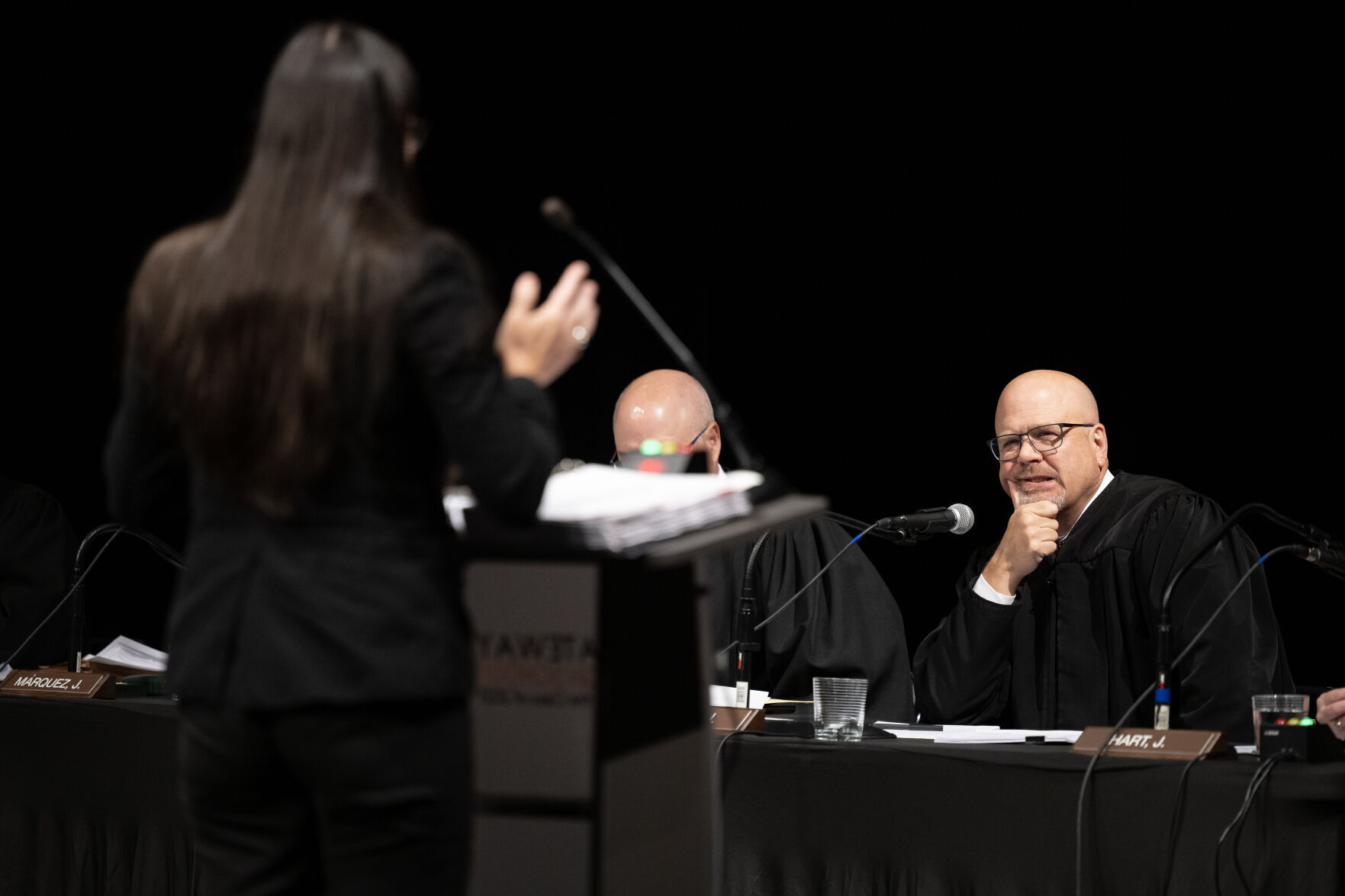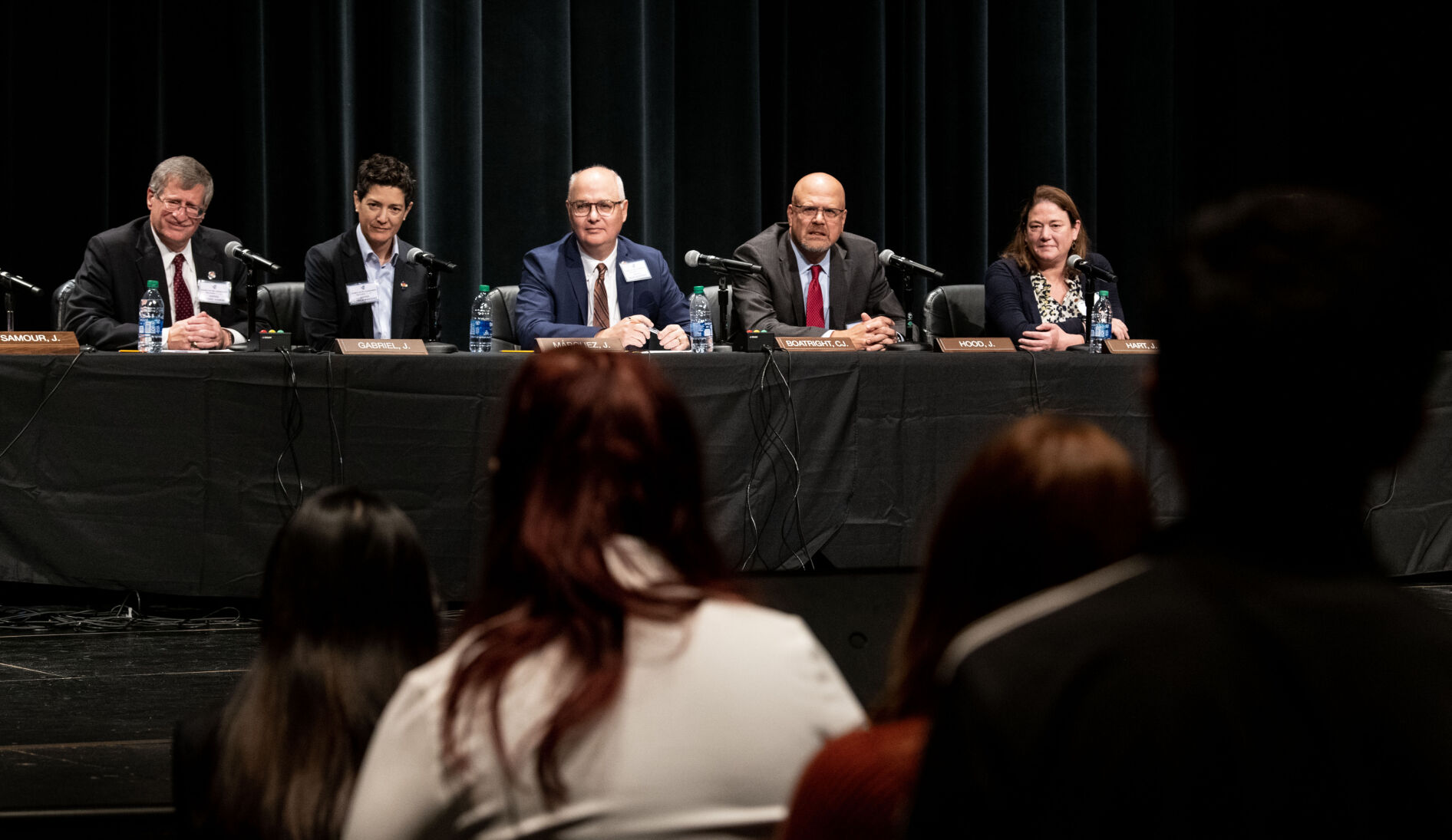parole
-

Colorado acknowledges failure to begin parole revocation proceedings against man who caused fatal crash
—
by
State corrections officers failed to follow policy after they learned that Christopher Moore – the man at the center of a police chase and fatal crash on Tuesday – was arrested in June on felony charges nine days after he was paroled out of the Colorado prison system, 9NEWS Investigates has learned. That arrest should have triggered an…
-
Colorado Supreme Court accepts cases on parole revocation, debt collection
—
by
The Colorado Supreme Court recently announced it will decide whether people must appeal their revocation of parole to the parole board itself, or if they can seek judicial review directly. At least three of the seven members must agree to hear a case on appeal. The justices also will decide whether a debt collection company…
-
Colorado justices reject unusual appeal by analogy in community corrections sentencing case
—
by
The Colorado Supreme Court concluded on Tuesday that state law did not entitle a man to receive credit for the time he spent in non-residential community corrections, notwithstanding the court’s own 34-year-old analogy suggesting a deduction was possible. When Ryan Wallace Bonde was terminated from a non-residential community corrections program and resentenced to prison, his…
-
Colorado justices consider 33-year-old analogy’s impact on community corrections sentences
—
by
The Colorado Supreme Court pondered an unusual question on Wednesday: When a previous decision relied on an analogy, but the circumstances of the analogy have since changed, is the prior decision still valid? Ryan Wallace Bonde’s appeal to the Supreme Court explores whether Bonde’s time in non-residential community corrections can be deducted from the prison…
-
After hearing from Colorado’s justices, 10th Circuit rules defendant cannot challege parole eligibility — yet
—
by
The federal appeals court based in Denver ruled on Monday that a defendant who is serving a potential life sentence for crimes he committed as a 15 year old cannot pursue a constitutional challenge now to any future decision about his parole eligibility. The U.S. Court of Appeals for the 10th Circuit reached its decision…
-
Appeals court says man cannot escape conviction for attempting to influence public servant by blaming mom
—
by
Colorado’s second-highest court ruled on Thursday that the crime of attempting to influence a public servant does not require the defendant to personally be the one making the deceptive statement. In answering the question for the first time, a three-judge panel for the Court of Appeals upheld a man’s conviction despite his effort to blame…
-

Colorado justices ponder parole requirements for juvenile sex offenders amid constitutional challenge
—
by
Colorado’s justices on Tuesday appeared to believe the state law authorizing lengthy sentences for adult sex offenders does, when applied to juveniles, account for the guardrails necessary to comply with the U.S. Constitution. However, that determination would only be a piece of the larger puzzle, due to the unusual manner in which the case of…
-

Colorado Supreme Court to scrutinize parole requirements for juvenile sex offenders
—
by
The Colorado Supreme Court has agreed to answer whether the state law authorizing indefinite, potentially lifetime sentences for sex offenses makes room for the special considerations that must be given to juveniles who are tried as adults. In a rare move, the court accepted the question not through the usual appeals process, but following a…
-

Justices agree with state, inmate on parole eligibility calculation
—
by
The state’s Supreme Court justices agreed with both the Colorado Department of Corrections and inmate Nathanael E. Owens on Tuesday that the government should calculate Owens’ earliest parole date using a “hybrid” method accounting for the varying eligibility protocols in his three consecutive sentences. The justices cleared up in Owens’ appeal any lingering confusion from…
-

Justices asked to endorse hybrid model of calculating parole eligibility
—
by
In an unusual display of unity before the Colorado Supreme Court, both the government and inmate Nathanael E. Owens agreed that he was entitled to have his parole eligibility date calculated in a way that would move his potential release date one year earlier. However, Owens asked the justices to go further and order the Colorado…






